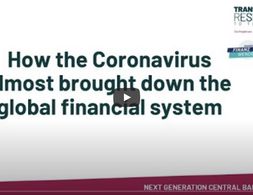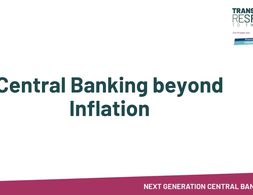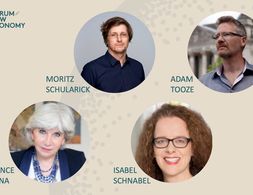✕
183 results
The goal of the class is to acquire familiarity with recently-published research in alternative macroeconomics with a focus on the distribution of income and wealth, cyclical growth models, and technical change.
By the end of this course, students should understand the basic economic theories of the gender division of labor in the home and at the workplace, and theories of gender differences in compensation and workforce segregation.
What determines the status of women in different communities? What role is played by women’s labor (inside and outside of the home)? By cultural norms regarding sexuality and reproduction? By racial/ethnic identity? By religious traditions? After some brief theoretical grounding, this course will address these questions by examining the economic, political, social, and cultural histories of women in the various racial/ethnic groups that make up the US today.
To what extent does gender affect people's patterns of labor force participation, educational preparation for work, occupations, hours of work (paid and unpaid) and earnings?
This syllabus provides an overview of the content of the Philosophy of Economics course at the University of Wisconsin-Madison.
As the current economic crisis spreads around the globe questions are being asked about what king of capitalist or post-capitalist economy will follow. There is increasing talk of the need for stringent economic regulation, the need to temper greed and individualism, to make the economy work for human and social development.
In this essay the authors argue for a wider concept of care work that includes community building, civic engagement and environmental activism. On the basis of the case of Cargonomia, a grassroot initiative in Budapest, they show that such a wider concept of care work could allow for different narratives that promote sustainable lifestyles with a milder environmental and social impact on the planet and its communities.
The objective of the course is to explore the main strengths and weaknesses of orthodox and heterodox paradigms within development economics.
Part I: Basic Economic Problems Is Economics a Science? Is It Useful? (Lawrence Boland, Ian Parker) Is There Such a Thing as a Free Market? (William Watson, Robert Prasch) Part II: Consumers and Firms Is Homo Economicus an Appropriate Representation of Real-World Consumers? (Joseph Persky, Morris Altman) Is the Consumer Sovereign?
In 18th century Europe figures such as Adam Smith, David Ricardo, Friedrich List and Jean Baptiste Colbert developed theories regarding international trade, which either embraced free trade seeing it as a positive sum game or recommended more cautious and strategic approaches to trade seeing it as a potential danger and a rivalry and often as a zero-sum game. What about today?
Approaching the law of nature that determines all forms of economy. The bulk of economic theory addresses the economic process by setting out on a catalogue of aspects, seeking the laws in the aspects and hoping to get together a reliable view of the whole.
Steve Keen analyses how mainstream economics fails when confronted with the covid-19-pandemic. Mainstream economics has propagated the dismantling of the state and the globalization of production - both of which make the crisis now so devastating. More fundamentally, mainstream economics deals with market systems, when what is needed to limit the virus’s spread is a command system.
Exploring Economics, an open-source e-learning platform, giving you the opportunity to discover & study a variety of economic theories, topics, and methods.
How do people make decisions? There is a class of models in psychology which seek to answer this question but have received scant attention in economics despite some clear empirical successes. In a previous post I discussed one of these, Decision by Sampling, and this post will look at another: the so-called Fast and Frugal heuristics pioneered by the German psychologist Gerd Gigerenzer. Here the individual seeks out sufficient information to make a reasonable decision. They are ‘fast’ because they do not require massive computational effort to make a decision so can be done in seconds, and they are ‘frugal’ because they use as little information as possible to make the decision effectively.
Environmental catastrophe looms large over politics: from the young person’s climate march to Alexandria Ocasio-Cortez’s Green New Deal, increasing amounts of political space are devoted to the issue. Central to this debate is the question of whether economic growth inevitably leads to environmental issues such as depleted finite resources and increased waste, disruption of natural cycles and ecosystems, and of course climate change. Growth is the focal point of the de-growth and zero-growth movements who charge that despite efficiency gains, increased GDP always results in increased use of energy and emissions. On the other side of the debate, advocates of continued growth (largely mainstream economists) believe that technological progress and policies can ‘decouple’ growth from emissions.
The most successful multialternative theories of decision making assume that people consider individual aspects of a choice and proceed via a process of elimination. Amos Tversky was one of the pioneers of this field, but modern decision theorists – most notably Neil Stewart – have moved things forward. At the current stage the theories are able to explain a number of strictly ‘irrational’ but reasonable quirks of human decision making, including various heuristics and biases. Not only this, but eye movements of participants strongly imply that the decision-making process depicted in the theories is an accurate one.
In the history of the social sciences, few individuals have exerted as much influence as has Jeremy Bentham. His attempt to become “the Newton of morals” has left a marked impression upon the methodology and form of analysis that social sciences like economics and political science have chosen as modus operandi.
This paper is a product of an online workshop held in Nigeria on the topic Unemployment: Policy Review and Recommendations. It explores the various unemployment policies introduced by the Nigerian Government and analysis how effective they are and suggests some practicable solutions to solving unemployment problems in the country.
The workshop was organized by Rethinking Economics The Uploaders (RETU) as part of the project Solving the Major Economic Problem in Nigeria (SMEPN), an output of the Global Pluralist Economics Training (GPET).
More details here: https://www.retheuploaders.org/programs/SMEPN
Anwar Shaikh explores alternative economic explanations, emphasizing 'real competition' theory and the role of imperfections in economic patterns.
Mariana Mazzucato explains how we lost sight of what value means and why we need to rethink our current financial systems so capitalism can be steered toward a bold, innovative and sustainable future that works for all of us.
This syllabus provides an overview of the contents of the course "Understanding Economic Models" at the University of Helsinki.
Learn the basics of microeconomics including supply and demand of commodities and how equilibrium in the market affects price Joon Koo Lee edX Seoul National University
Institutional economics focuses on the role of social institutions in terms of laws or contracts, but also those of social norms and patterns of human behaviour that are connected to the social organisation of production, distribution and consumption in the economy.
Overview page for the collection of nobel laureateas on Exploring Economics
How long the COVID-19 crisis will last, and what its immediate economic costs will be, is anyone's guess. But even if the pandemic's economic impact is contained, it may have already set the stage for a debt meltdown long in the making, starting in many of the Asian emerging and developing economies on the front lines of the outbreak.
Economists like to base their theories on individual decision making. Individuals, the idea goes, have their own interests and preferences, and if we don’t include these in our theory we can’t be sure how people will react to changes in their economic circumstances and policy. While there may be social influences, in an important sense the buck stops with individuals. Understanding how individuals process information to come to decisions about their health, wealth and happiness is crucial. You can count me as someone who thinks that on the whole, this is quite a sensible view.
Recording of the Workshop “The collateral supply effect on central banking”, 04.02.2021, part of the "Next Generation Central Banking - Climate Change, Inequality, Financial Instability" conference by the Heinrich-Böll-Stiftung
This panel was part of the conference "Next Generation Gentral Banking - Climate Change, Inequality, Financial Instability" 03. - 05.02.2021.
This panel was part of the conference "Next Generation Gentral Banking - Climate Change, Inequality, Financial Instability" 03. - 05.02.2021.
Central banks have once again proven to be the first line of defense in crisis-ridden times. With their far reaching actions they prevented the world from experiencing a collapse of financial markets on top of the severe health and economic crisis caused by Covid-19.
There was a time when the world still seemed a good and above all simple place for monetary authorities Every few weeks they had to decide whether in view of the latest price developments it would be better to raise the key interest rates by a quarter point or not …
This course focus on the behaviour of individuals from an pluralist economic and an interdisciplinary bevavioural science apprach.
We use cookies on our website. Click on Accept to help us to make Exploring Economics constantly better!

























